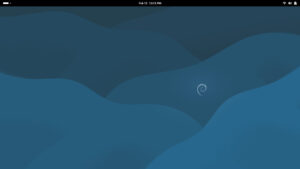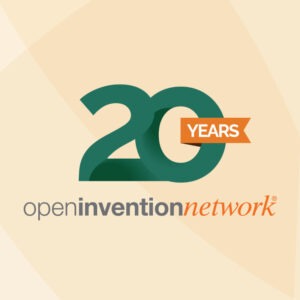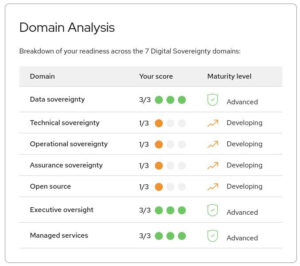Another year has come and gone, and as you might have guessed, 2014 still wasn’t the year of the Linux desktop.
Covering FOSS and Linux isn’t nearly as exciting as it was a decade or so ago — but that’s a good thing. Back then, we were at war with nearly every proprietary software vendor on the planet and faced threats from all directions, including up and down. To be sure, we didn’t start the wars we were fighting, as PROFAL (the People’s Republic of FOSS and Linux) only wished for peaceful coexistence.
The dust settled long ago and it appears as if we won most of these wars we didn’t start. Even our old arch enemy Microsoft is now waving the flag of peace and is seeking to normalize relations with us. And our old arch-arch enemy, SCO, doesn’t even exist any more — at least not in any form that we would recognize as the SCO of old. May Caldera rest in peace.
That doesn’t mean there’s not still news to be covered in the FOSS world. There is — and plenty of it. But these days, it’s mostly about advancements in technology, new start-ups and new alliances. We still face threats, to be sure, from crackers, spooks, politicians, the RIAA and the MPAA, but these forces threaten all of computerdom, not just FOSS, so we’ve been able to nurture some new strange bedfellows to join us in our struggles.
As years go, 2014 wasn’t the most boring year in the history of the free software movement, but it also wasn’t overly exciting. Again, that’s a good thing as it means there was no battening down the hatches and stuff. Still, there were many trends in the news this year which directly affect the purveyors and users of FOSS.
Here’s my top five list:
- The Cooling of the Patent Wars: Patents remain as possibly the last front where live ammunition is still being fired at FOSS. Google’s Android, for instance, continues to earn for Microsoft about four bucks for each and every device made running the mobile operating system — all to settle patent claims. According to the website FOSS Patents, Samsung alone forked over a cozy billion dollars in U.S. greenbacks to Redmond in 2014, with other sites estimating that the-house-that-Gates-built-and-Ballmer-nearly-destroyed is taking in a couple of billion dollars yearly from all Android sources. Again this year, Microsoft’s profits from Android are higher than what it makes from it’s own mobile devices, although not by as wide a margin as in the past.
However, patent trolling is a business in decline. This is mainly due to the courts, which are finally beginning to examine patent claims with a more critical eye. There was, of course, the Alice v. CLS Bank ruling this year, in which the Supreme Court basically ruled that an abstract idea can’t be cloned into a newly patentable process merely by adding the words “on a computer.” Lower courts have also been getting into the act, so much so that 2014 set a new record for software patents being invalidated during litagation.
Perhaps the most telling sign of the sinking value of software patents came just a week ago, when the patent trolling company Rockstar, jointly owned by Apple, Microsoft, BlackBerry, Sony, and Ericsson, offloaded it’s approximately 4,000 remaining patents for $900 million — representing about two thirds of the patents it purchased in 2011 for $4.5 billion in a bidding war with Google. Google would seem to have the last laugh here, as it’s a member of RPX, the company buying the patents, meaning they’ll be available to them as protection against patent litigation, which is why they had been a bidder in the first place.
The bad news (there has to be some bad news): 2,000 of Rockstar’s most valuable patents had already been snapped up by its owners.
- Net Neutrality: Although Internet Neutrality, the idea that the World Wide Web should be a level playing field in which all players are treated equally, isn’t directly related to free software, it does strike to the heart of FOSS’s underlying ideas.
The issue of net neutrality came under direct fire in January of this year, when a federal appeals court struck down FCC rules prohibiting ISPs from blocking or prioritizing Internet traffic. Since then there’s been something of a battle going on, with the ISP’s and their cronies coming down on the side of an “open market” approach and others, including President Obama, pushing for an open Internet.
Hopefully, this will be settled in 2015.
- Hacks and Cracks: It seems that everyone from the Russian mob to the NSA wants to crack into every computer on and off the Internet — and they’re getting pretty good at it. This is nothing new, of course; it’s been happening for years. However, this seems to have been a watershed year for the bad guys.
On the business side, we’ve seen customer data compromised all over the place, with the feds claiming back in October that over 500 million financial records had been stolen over a twelve month period. Additionally, the NSA and its friends in Canada and the UK, have continued with their dirty tricks, with news just the other day on our homegrown born-in-the-USA spooks attempts to break the encryption we use to protect ourselves from…well, our homegrown spooks.
This was also the year when Linux and Unix security faltered and sputtered briefly, giving us Linux users the opportunity to experience what Windows users go through every day. I’m talking, of course, about Shellshock (or Bashdoor), a particularly nasty security bug that affected the Bash shell. Although it was quickly patched, it did serve as a reminder that no operating system in invincible, not even Linux.
- systemd: The only reason why systemd isn’t at the bottom of this year’s list is because forking is there, and the biggest fork story of the year concerns systemd.
The systemd brouhaha is one of those cases which comes along every couple of years or so in which the FOSS community turns in on itself and begins eating its own. These days, if you want to start a fight on a Linux forum, all you have to do is post support of systemd and wait for the brawl to develop. Hell, you don’t even need to support systemd. Just say you don’t give a rat’s behind, like me, and that should be enough to do the trick. Nevermind that systemd’s being incorporated into a majority of distros and that it looks as if it’s here to stay.
Systemd is an init daemon, the first process executed in user space during startup process in distros that use it. As I’m not a coder or software engineer, I’ll leave this argument to be sorted out by those who have an opinion that matters.
- Forks and non-forks: Although there haven’t been a great number of projects forked this year, there have been a couple of notable exceptions.
The first is a non-fork announced by CoreOS, itself a fork of Chrome OS, of the container runtime software, Docker. I’m calling this a non-fork because the folks at CoreOS have claimed Docker to be “fundamentally flawed” and plan to replace its functionality with a command line tool under development called Rocket. Version 0.1.0 is currently available on GitHub.
This is a big deal for the developers of CoreOS, a lightweight Linux distro with the main purpose of providing the minimal functionality required for deploying applications inside of containers. Maybe not so much for the rest of us.
The other big fork story this year involves Devuan, a planned fork of Debian by a group of disgruntled developers who’re unhappy about Debian’s plans to replace sysvinit init with systemd. While this may elicit some oh-no-not-Debian oohs and aahs from the easily excitable peanut gallery, I’m taking a ho-hum attitude. In other words, I’m about as excited about this as I am about systemd. After all, what is Ubuntu but a fork of Debian? And Debian seemed to have survived that.
At least two bloggers writing about the Debian/Devuan fork wondered if this was a good thing. Hmmm… In my not-so-humble opinion, forks are neither good nor bad. They just are. If this one can raise enough money to get off the ground and then find a user base, it’ll be a good thing — at least for those who use it. End of story.
If a systemd free version of Debian is important to you, you can show some financial support by visiting the donation page of the Devuan website.
Christine Hall has been a journalist since 1971. In 2001, she began writing a weekly consumer computer column and started covering Linux and FOSS in 2002 after making the switch to GNU/Linux. Follow her on Twitter: @BrideOfLinux


















I think one of the biggest stories is Mint dumping the Ubuntu interim release model and building its releases on the LTS Ubuntu 14.04. Ubuntu’s model makes no sense if it’s doing “point releases” on 14.04 and then asking end users to install 14.10 etc. I think Mint is right – Ubuntu’s 14.10 and the rest until the next LTS version are nothing but Beta for developers, and the focus should be on the point releases. There aren’t enough decently paid “worker bees” in Linux for desktop as it is, and talent shouldn’t be scattered as badly as it is.